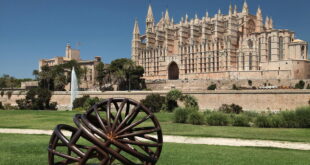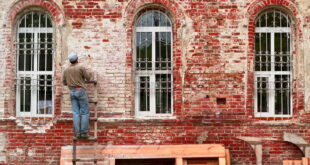Editor’s Digest: Unlock it for Free
In this weekly newsletter, Roula Khalaf, Editor of FT, chooses her favorite stories.
Brussels is to unveil a new way to allocate more than €750bn of EU farming and development funds, shifting the common budget to favour newer member states and those bordering Russia, according to a leaked proposal.
The European Commission on Wednesday will launch its plan for the EU’s next seven-year budget, a proposal for more than €1tn of the bloc’s joint spending that must be agreed unanimously by all 27 member states.
The most radical reform involves bundling hundreds of existing spending programmes — crucially the €392bn for regional development and €387bn for farming under the existing seven-year budget — into one single plan for each nation.
The approach allows capitals to spend more freely and divert funds from other areas, such as regional development, to defence.
Financial Times reports that a proposal leaked by the Financial Times suggests “having one envelope per state would allow for efficient and flexible funding allocation across policy areas. This would enable member states to address their new priorities, such as defence capability or preparedness.”
The leaked draft states that the size of the national budgets, or “envelopes” as they are called by the commission, would be determined using a new complex formula which adjusts the criteria used to allocate money in a significant way.
This method is a re-evaluation of the so-called cohesion fund distribution, and removes a system of categorising by level of development.
Romy Hansum, a fellow of the Jacques Delors Centre (a Berlin think-tank), said: “Poor countries will win at the expense those countries who are richer on average but have some areas that are poorer, especially France and to a certain extent Spain and Germany.”
The commission also aims to reduce the “agri-prosperity gaps” between the older and newer member states by reducing funding differences per hectare.
Hansum said that the countries with large agricultural land and lower per-hectare payments, i.e., all of eastern Europe, would benefit most.
Changes will also likely force countries like France and Italy that receive both regional funds as well as agricultural subsidies to give up regional funds, because direct agricultural subsides will be ringfenced.
At the same time, the new system prioritises investment in external security, specifically benefiting countries which have direct external borders with Belarus and Russia — such as the Baltic countries, Poland and Finland — and those handling large numbers of migrant arrivals, including Malta and Greece.
The draft states that this transfer of funds will be limited, as the national envelopes “cannot be less than 80 percent and cannot be more than 105 percent” of the current budget allocation of the EU countries.
The idea of creating a single envelope for all member states angered many current recipients of EU funds. This includes local and regional authorities, which are the traditional recipients.
Kata Tüttő, president of Europe’s Committee of the Regions, an EU body that represents them, told the Financial Times the proposal could end up being “an overly-complicated way to offer a blank cheque to national governments”.
 Costa News Spain Breaking News | English News in Spain.
Costa News Spain Breaking News | English News in Spain.





